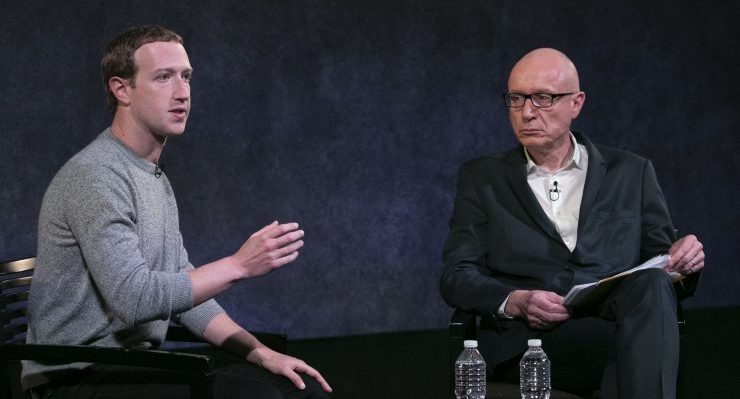
The latest agreement for News Corp to provide content for the upcoming Facebook News platform (expected to launch in the next six months), risks a further intensifying of News Corp’s growing commercial monopoly on news in Australia — if it works.
The deal plays to each company’s goals. For News Corp, it generates revenues by having its news output at the centre of the emerging news aggregators being rolled out by tech platforms. The company is already part of Apple News+ (launched in Australia last month).
For Facebook, it meets two goals: first, the news tab (like the recently launched Facebook Watch for video) will keep users within the Facebook ecosystem, consuming content other than the standard news feed fare. Second, it gets News Corp off Facebook’s back, with the latter paying a licensing fee for at least some of the material that it will post in the news tab.
There is a natural synergy between the two companies, with both Facebook and News Corp’s media increasingly targeting the same ageing (and, in the US, largely white) demographic.
It’s unclear how much money is involved, although the word “millions” has been airily thrown around — which seems a lot until you remember that News Corp still collects “billions” from advertising in its Australian products alone.
Will it work? News Corp seems more enthusiastic than Facebook. In a video conversation between the companies’ respective CEOs Mark Zuckerberg and Robert Thomson, Zuckerberg suggested the tab might attract 10-20% of Facebook’s 2.2 billion daily users. In an age of attention scarcity, it’s hard to see where all that time will come from.
What impact that will have on Australian users is unclear. By comparison, Neilsen data shows that news.com.au on its own has about 10 million monthly users, each spending an average 30 minutes on site.
It’s not Facebook’s first try. Back in 2017, when it was tweaking its news feed to prioritise family and friends, it trialled an “explore” tab in six countries (like many Facebook ideas, this was borrowed from SnapChat). News posted by publishers was shunted to explore and organic reach fell by about two-thirds. The experiment was dropped about a year later.
Facebook has also been tempting news organisations to trial their watch tab for video. However, Nine’s director of commercial partnerships, Lizzie Young, recently dismissed the experiment as “not meaningful”.
However, according to social media engagement tracking firm NewsWhip, News Corp’s sister organisation Fox News has stayed one of the top two Facebook news sources, largely off the back of the watch feature. In Australia, Sky produces a curated program of its commentary for watch.
Zuckerberg also suggested that local news may be featured in its “Today In” feature, which promotes posts and information about local cities in the US. This is not yet available in Australia.
The major furore around the news tab has not been the leg-up it gives News Corp. It’s been about the inclusion of non-news publishers, particularly the right-wing Breitbart.
When the company announced back in April that it was planning the news tab, Zuckerberg said it would be a place for “high quality” and “trustworthy” news. He said it would be both “personalised” — that is, driven by what the Facebook algorithm thinks you want to see — and “curated” — that is, determined by actual people. This model was confirmed on launch last month.
The tab’s inclusion of far-right rag Brietbart was justified in a blog post by Facebook’s head of global news partnerships Campbell Brown: “we should include content from ideological publishers on both the left and the right — as long as that content meets our integrity standards for misinformation”.
However, Breitbart is not a news organisation of any sort. It is a propaganda voice for the extreme right. Its inclusion not only pollutes the news feature, it risks degrading the brand of all publishers associated with the tab.
And as an indicator for the future, the inclusion of Brietbart suggests that pandering to the US right remains a higher corporate priority than building a genuine platform for news.








Remember when Murdoch shrugged off the new world wide web, the internet, saying it’d be a passing fad? Well, since then and as the advertising rivers of gold were quickly diverted by canny people hip to the rapidly changing digitised times (who weren’t surrounded by simpering, equally dinosaur-era yes men), his company has largely sat on it hands screaming foul play, it’s not fair. But News has finally, 30 years on, found a way to leverage something out of the social media giants and given, for example, the well-documented cases of false and misleading information, even outright lies, being disseminated to carefully profiled cohorts, this deal with the Breitbart-favouring Facebook is very serious. The Right is already far more adept at mining social media user’s profiles to compile audiences to target for nefarious purposes. FB getting into bed with far right media has an even greater, possibly incontestable and irreversible capacity to further distort our political discourse and processes and our society.
“ He said it would be both “personalised” — that is, driven by what the Facebook algorithm thinks you want to see ”
I cannot fathom how thinking humans can even consider letting machines spoon feed them “news” What sheep, some people are.
My apologies to the woolly animals, I like them ( and not to eat)